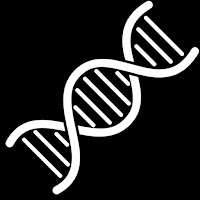 |
| ZyCov-D / Zydus Cadila |
With ZyCov-D, India now has its first COVID vaccine for its 120 million 12 to 18 year old teens. This is expected to benefit older children as schools gradually reopen after a nearly 18-month shutdown.
In October it is expected to begin vaccinating 12 to 18 year olds with this domestically developed COVID-19 DNA vaccine.The vaccine has received approval for emergency use among this age group and older people.
The company, which got the drug regulator's nod for ZyCoV-D on Aug. 20, plans to produce 100 million to 120 million doses annually.
Ahmedabad-based producer Zydus Cadila's ZyCoV-D vaccine, developed in partnership with the Indian government's Department of Biotechnology, is administered in three needle-free doses. It showed primary efficacy of 66.6% for symptomatic COVID cases, according to interim results from the vaccine's Phase-III clinical trials conducted among over 28,000 volunteers.
ZyCoV-D is administered with a needle-free applicator that ensures painless, intradermal vaccine delivery. The second dose is to be given 28 days after the first, and the third follows four weeks after the second.
 |
| ZyCov-D / Zydus Cadila |
- Covishield, the local name of the AstraZeneca vaccine domestically produced by the Serum Institute of India
- Covaxin, another indigenously developed jab
- Russia's Sputnik V
- Shots from U.S.-based Moderna and Johnson & Johnson.
- And the newly researched ZyCoV-D vaccine
The country of over 1.3 billion has been mainly using the two-dose Covishield and Covaxin vaccines since beginning its inoculation drive on Jan.16. As of Tuesday, over 52% of its adult population of 944 million had received at least one dose while 15.6% had received two.
India is the world's second-worst-hit nation after the U.S., having reported over 32.8 million cases and 439,020 deaths as of Wednesday. In early May, at the height of the still-dangerous second COVID wave, more than 400,000 new infections were being confirmed every day, driven mainly by the delta variant. That was far higher than the single-day peak of 97,000 new infections that hit the country last September.
In recent weeks, fewer than 50,000 new cases have been surfacing each day.
Plasmids are small, circular pieces of DNA usually found in bacteria that contain genetic information. Built on this platform, the ZyCoV-D vaccine produces the antigen or spike protein of the SARS-CoV-2 virus which causes the disease and elicits an immune response, protecting from illness and helping in viral clearance.
Rajesh Bhushan, India's health secretary, told a media briefing last week that the vaccine is expected to become available in the first week of October. "We are in talks" with the vaccine manufacturing company on crystallizing the terms and conditions of procurement, he said.
Even though it is "a good vaccine" and the only one available for the 12-18 age group, its three-dose regimen could be a logistical challenge for India, according to Arun Gupta, a pediatrician and president of the Delhi Medical Council.
References:
- Press release by Ministry of science and technology.



